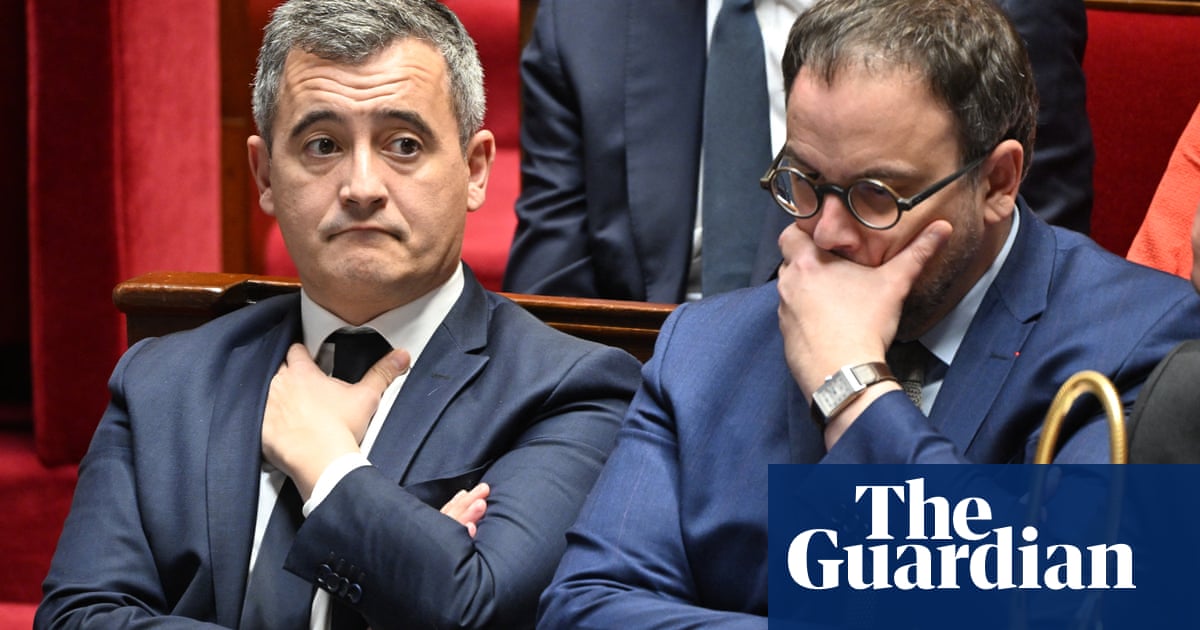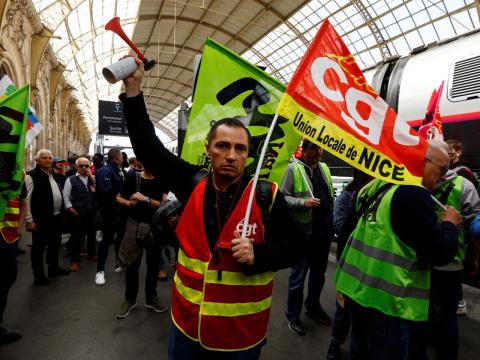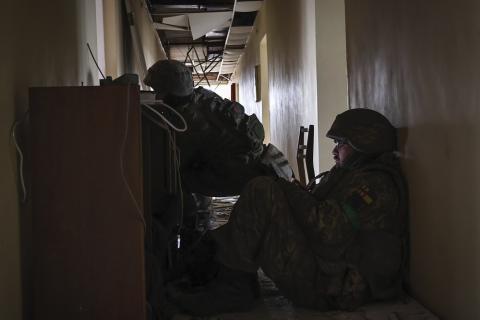
The French government has said it will push on with a planned immigration law in the face of a political crisis after opposition parties from the left to the far right refused to even debate it in parliament.
The president, Emmanuel Macron, and the centrist government were surprised by a humiliating defeat on Monday – the first time in 25 years that a government bill was rejected before even being debated by parliament.
The immigration bill is intended to show Macron can take tough measures on migration while keeping France’s doors open to foreign workers who can help the economy. But its contents have been rewritten several times, first toughened by the right-dominated senate, then partially unpicked by a parliamentary commission, resulting in confusion and fierce opposition.
After crisis meetings on Tuesday, the government decided to send the legislation back to a parliamentary committee made up of seven senators and seven lawmakers from the lower house, in order to thrash out a compromise text to break the deadlock. The political crisis threatened to weaken the government, whose centrists do not have a majority in parliament and nine months ago pushed through controversial changes to the pension age without a vote in parliament and amid street protests.
The bill’s stricter provisions, disliked by leftwing lawmakers and rights groups, include the easier expulsion of people who have settled in France but “do not respect the values of the republic”, including those convicted of certain crimes. The bill also lowers the age at which foreigners could be expelled. It includes tougher conditions for families to join loved ones, setting requirements for health insurance and a regular income.
The bill would also set “objectives” on immigration, which some on the left criticised as bringing in a form of quotas that would fix the number of entries to France.
The more liberal aspects of the immigration bill, including regularising undocumented workers in sectors with labour shortages, such as the building industry, health and care sectors and hotels and restaurants, have been criticised by conservatives and the far right.
In an unprecedented move on Monday evening, very different opposition parties voted the same way – from the Greens and leftwing France Insoumise party to the traditional right Les Républicains and Marine Le Pen’s far-right National Rally – to reject the bill before it could be debated.
A parliamentary committee would start work “as soon as possible” to deliver a compromise text, said the government spokesperson, Olivier Véran. This could result in the bill being further toughened along the lines of the right. It still faces the difficulty of passing a vote upon return to the lower house of parliament.
A government source said Macron, at a cabinet meeting, had denounced the “cynicism” of members of the opposition, accusing them of seeking to “obstruct the country”.
He was quoted as saying: “We need a law on integration and immigration.”
The rejection of the bill is deeply frustrating for Macron, who French media and political critics were quick to warn could become a potential lame duck if his government cannot pass major legislation during the more than three years that remain of his second term. Because of constitutional rules, Macron cannot stand for president for a third time in 2027.
The immigration row has also called into question Macron’s approach of tactical politics, which was once seen as a form of pragmatism: walking a pro-business line and merging centrist ideas from the left or right. He is now seen as shifting to the right to try to gain the cooperation of the rightwing Les Républicains party, amid difficulties in keeping the left side of his own centrist party onboard.
Amid shouts and jeers in parliament on Tuesday afternoon, the prime minister, Élisabeth Borne, said the government would “not give up on introducing strong measures” on immigration. She said the bill “simplified” French procedures and toughened sanctions against people-traffickers.
“We need these measures, our fellow citizens expect them,” she said. “We’re seeking compromises.” She supported the interior minister, Gérald Darmanin, who had offered his resignation after the chaos surrounding the bill in parliament, but who Macron had said should stay in his job.
The proposed immigration law was in part designed as a response to the rise of the anti-immigration far right in France, but critics warn the controversy around it could end up boosting them. It is the second immigration law since Macron became president in 2017 and the leftwing opposition have criticised him for focusing on immigration when polls show French voters have bigger concerns, including making ends meet, education and healthcare. Le Monde calculated that the French parliament had voted on a new immigration law on average every two years since 1945.
Le Pen’s National Rally, the biggest single opposition party in parliament, is seeking to profit from the government crisis. Its president, Jordan Bardella, called for parliamentary elections on Tuesday, saying his party would increase its vote. But the government has ruled out an election.
Bardella said: “We have our own immigration bill, it’s written, it’s ready and it’s a thousand times tougher than the one proposed by the government. We have a thousand and one measures that would give back security to French people, and give them back the fruits of their labour.”












